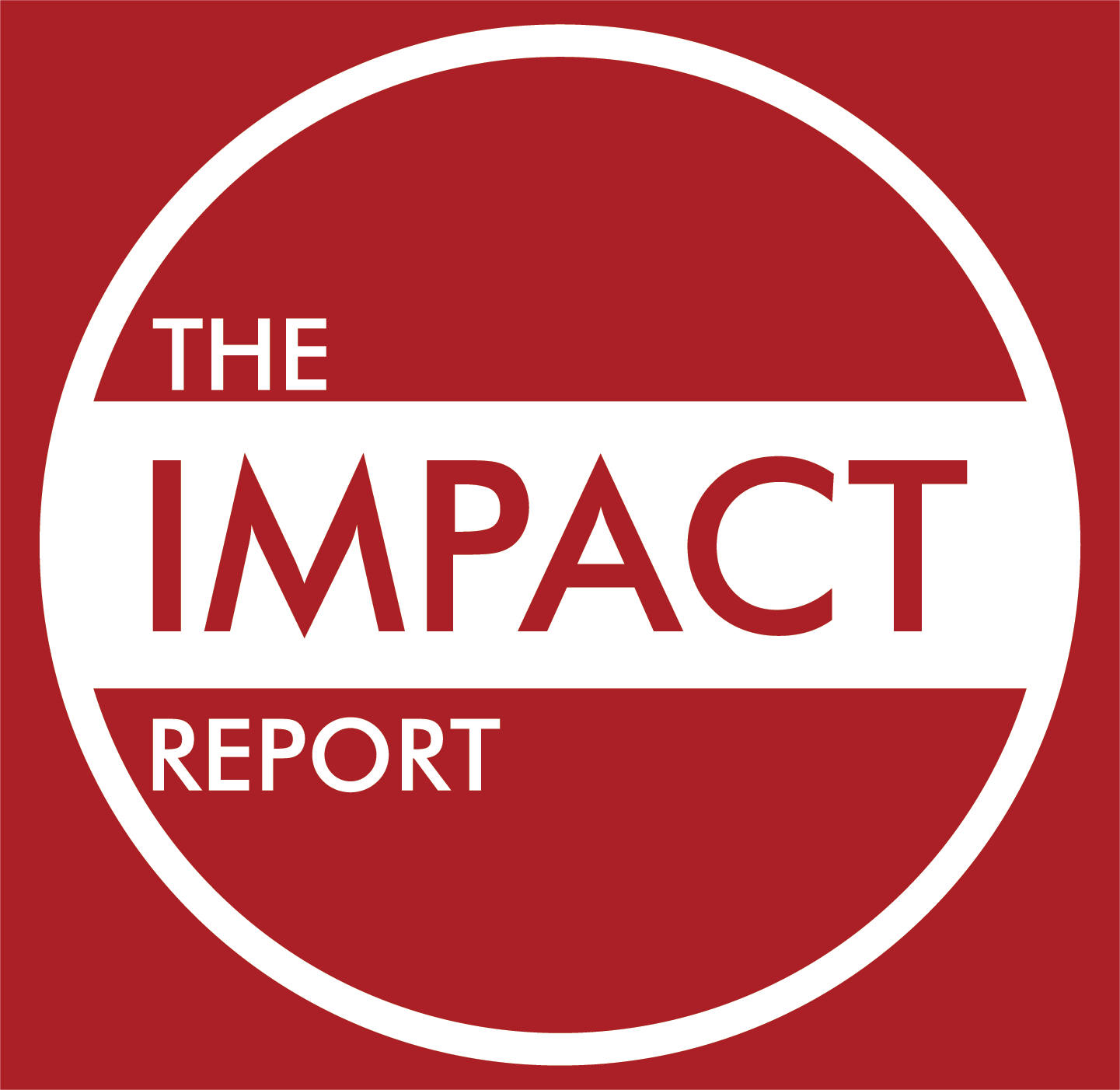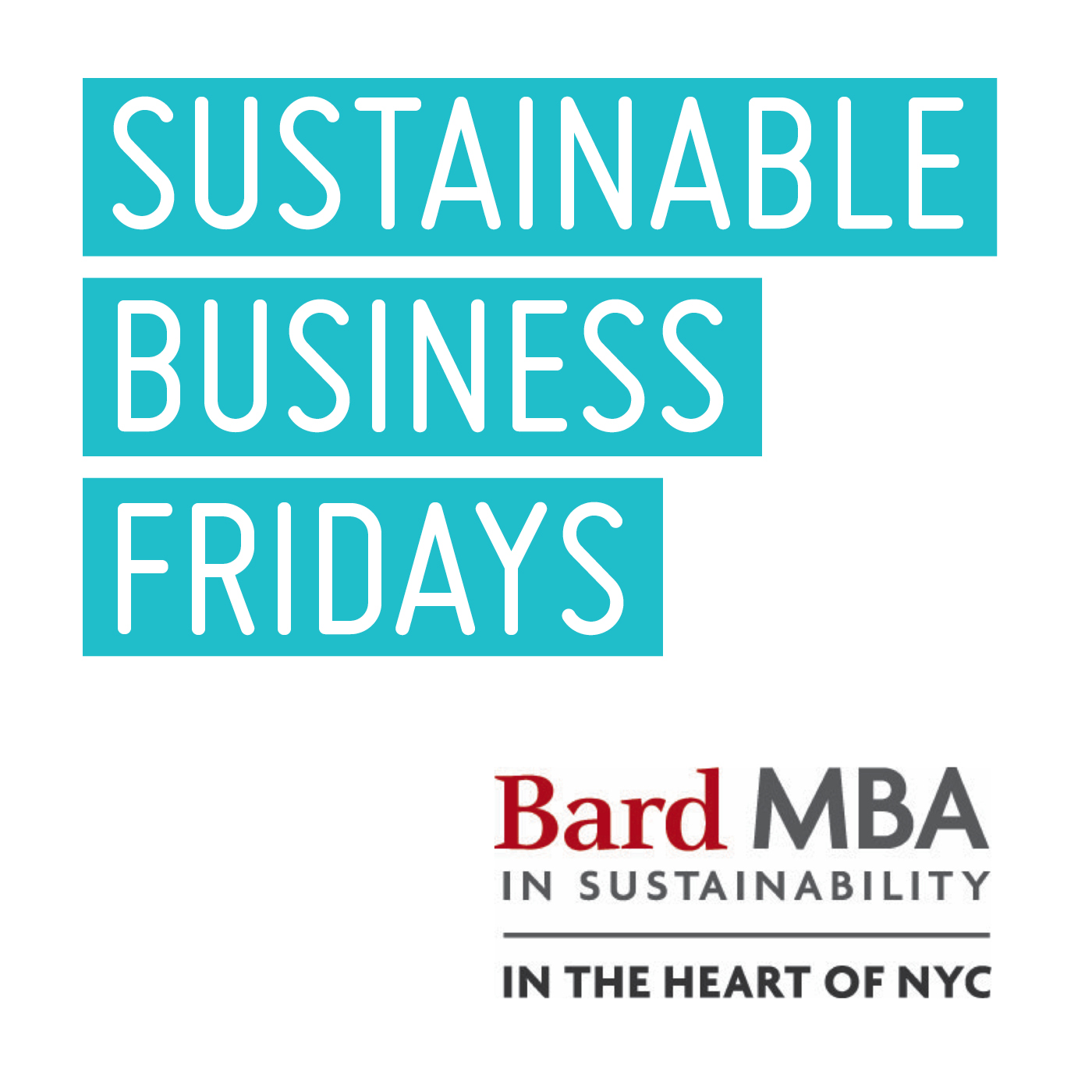Episodes

Friday Mar 16, 2018
#104 Luke Truman
Friday Mar 16, 2018
Friday Mar 16, 2018
How Allagash Brews Sustainable Practices into its Operations: A Conversation With Luke Truman
The grain is just one way it's closing the loop. Portland’s Allagash Brewing Company has committed to purchasing 1 million pounds of Maine-grown and -processed grain by 2021. And three days a week, a local farmer stops by the brewery to pick up spent grain, which he uses as feed for his cows.
Allagash demonstrates that same commitment to sustainability throughout its operations. From the cold Maine air that it uses to cool its largest refrigerated space, to the waste carbon dioxide (CO2) it captures from the brewing process and repurposes to keep head pressure on its tanks, the company sees sustainability potential in every aspect of its processes.
The Bard MBA's Carolyn Pincus spoke recently with Allagash's sustainability lead, Luke Truman, about the brewery’s many initiatives — and about how the company manages its relationship with industry regulators. Born and raised in Wyoming, Truman's been handling sustainability work at Allagash for over five years, and running the program for 2.5 years.
#leadthechange

Friday Mar 02, 2018
#103 Anne de Carbuccia
Friday Mar 02, 2018
Friday Mar 02, 2018
Making Art, Making Change: A Conversation With Anne de Carbuccia
“I wish to illuminate the damage, the breakage, the fragmentation. Somehow, if I can make it beautiful, I can make it one again.”
Anne de Carbuccia is a French-American environmental artist working to document the effects of climate change. She first became interested in the era of human beings as a geological force, the Anthropocene, while studying Art History and Anthropology at Columbia University.
De Carbuccia has spent the past five years traveling to the most extreme places on earth, creating photographs that capture human-caused threats to the environment, including water scarcity, pollution, and species extinction. In 2014, she established the Time Shrine Foundation to raise awareness and protect vulnerable species, environments and cultures. Her permanent One Planet One Future exhibitions in New York and Milan serve as centers for education, collaboration and community and are free and open to the public.
Sustainability strategist, media expert and Bard MBA alum Amy Kalafa, spoke with Anne de Carbuccia in January about her work for the Impact Report.
#leadthechange

Friday Feb 16, 2018
#102 Tom Szaky
Friday Feb 16, 2018
Friday Feb 16, 2018
Eliminating the Idea of Waste - A conversation with Tom Szaky, CEO & Founder of TerraCycle
"Why does waste even exist?" That’s the question at the heart of TerraCycle’s own existence. Since 2001, the company has been taking hard-to-recycle waste and turning it into raw material for use in new products. It operates in over 20 countries and engages over 60 million people.
2017 marked a period of significant growth for the relentlessly innovative company. TerraCycle had its first acquisition, placing it on the path to going public. It’s leveraging the JOBS Act to crowdsource for equity. And it’s partnering with major organizations such as Proctor & Gamble (P&G), Mars, Nestlé and Unilever to generate ultra-durable packaging forms that’ll be owned by the manufacturer and merely loaned to the consumer.
In December 2017, Bard MBA’s Alistair Hall spoke with Tom Szaky, founder and CEO of TerraCycle, about the company’s plans for growth and all the ways in which it continues to work toward eliminating the idea of waste in our world.

Friday Feb 02, 2018
#101 Dan Zarrilli
Friday Feb 02, 2018
Friday Feb 02, 2018
New York City Takes on Big Oil - A conversation with Dan Zarrilli, Chief Resilience Officer for the City of New York.
On January 10th, New York City became the first major US city to announce that the City’s $189 billion pension funds would divest City funds from fossil fuel reserve owners within five years. Currently, the City’s five pension funds hold approximately $5 billion in securities from over 190 fossil fuel companies.
To learn more about this, Bard MBA’s, Cindy Wasser spoke with Dan Zarrilli, Chief Resilience Officer for the City of New York.
You can learn more about this and other steps New York City is taking to mitigate Climate Change by visiting www1.nyc.gov

Friday Dec 15, 2017
S05 EP 08: Mary Powell, Green Mountain Power
Friday Dec 15, 2017
Friday Dec 15, 2017
Vermont’s Green Mountain Power obsesses on its customers. Under the leadership of CEO Mary Powell, it has radically restructured, positioning itself as an energy transformation company focused on meeting the needs of consumers with integrated, cutting-edge services that help them use less energy and save money.
In the process, the utility has become the first to help its ratepayers go off the grid, the first to offer residential solar customers the Tesla Powerwall battery and the first and only utility to achieve B Corp certification. And consumers have responded. Green Mountain Power has grown from serving 88,000 customers in 2008 to serving over 260,000 today, with revenues of more than $640 million and $2 billion in assets.
Last month, the Bard MBA’s Meghan Altman talked with Powell about the company’s transformative vision and where she sees the future of the energy system.
Powell has served as president and CEO of Green Mountain Power since 2008 and she’s been the backbone of its comprehensive restructuring and service quality improvement. In 2014, Powell was recognized by POWER-GEN as the Woman of the Year. In 2016, Fast Company named her one of the 100 most creative people in business and in 2017 CEO Connection designated her one of the top 25 most influential women of the mid-market.

Friday Dec 01, 2017
S05 EP 07: Thomas Singer, The Conference Board
Friday Dec 01, 2017
Friday Dec 01, 2017
Transitioning to the Circular Economy: Thomas Singer Profiles Seven Companies Making the Shift
Thomas Singer felt that there was already plenty of good writing about the theory behind the circular economy. So, when he and his Conference Board colleagues thought about what they wanted to contribute to the conversation, they focused on case studies: “real, practical examples of companies that have been involved in these types of initiatives.”
The resulting 2017 report, Business Transformation and the Circular Economy: A Candid Look at Risks and Rewards, profiles the strategies and successes of seven companies at the forefront of the transition to an economy based on recovery, reunse and regeneration.
Bard MBA student Carolyn Pincus spoke recently with Singer about his work and what he learned about why companies like Philips and Waste Management are increasingly pursuing circular economy initiatives.
Thomas Singer is a Principle Researcher in corporate leadership at the Conference Board. His work focuses on CSR and sustainability issues, and he’s the author of numerous other publications, including the comprehensive sustainability benchmarking report, Sustainability Practices.

Friday Nov 17, 2017
S05 EP 06: Kim Falkenhayn, Okabashi Shoes
Friday Nov 17, 2017
Friday Nov 17, 2017
When “Made in America” Means “Made Sustainably”
Currently, fewer than 2% of shoes worn in the United States are made here. Most are
manufactured overseas by a labor force that works in conditions that would not be acceptable for
American workers.
In contrast, Okabashi, a family-owned and operated footwear manufacturer, makes all of its
shoes in America, employing more than 200 people at its factory and headquarters in Buford,
GA. As a result, its flip flops, sandals and clogs travel almost 10,000 fewer miles than the
average imported shoe, substantially reducing their carbon footprint.
The Bard MBA’s Cory Skuldt recently spoke with Kim Falkenhayn, the company’s President,
about the challenges and opportunities presented by Okabashi’s commitment both to local
manufacturing and to closed-loop recycling.

Friday Nov 03, 2017
S05 EP 05: Nick Silver, Author & Co-Founder of Climate Bonds Initiative
Friday Nov 03, 2017
Friday Nov 03, 2017
Using Finance to Shatter the Fossil Fuel Economy
Nick Silver — actuary, economist and onetime mainstream finance professional — understands the consequences of the financial system continuing in its current form. Which is why his new book, "Finance, Society and Sustainability: How to Make the Financial System Work for the Economy, People and Planet," argues that to avoid collateral damage to the economy, society and the environment, we need to re-engineer the system.
Silver is also the managing director of Callund Consulting, a specialist consultancy that advises developing country governments on social insurance. He has advised the U.N., U.K. and EU on carbon markets, climate finance in developing countries and managing risk from climate change.
Bard MBA faculty member Kathy Hipple spoke recently with Silver about his background in finance and how it led him to write his book. Their conversation explores both the book and Silver's work with Climate Bonds Initiative, which Silver co-founded to mobilize the $100 trillion bond market for climate change solutions.

Friday Oct 20, 2017
S05 EP 04: Rebecca Hamilton, W.S. Badger Co.
Friday Oct 20, 2017
Friday Oct 20, 2017
Bard MBA graduates Sam Levine and Alex FitzGerald spoke recently with Rebecca Hamilton about Badger’s business model and how it goes beyond the B Corps standard. Hamilton is a co-owner and the vice president of research and development at Badger, where she sources new raw materials and oversees the sustainability and quality of Badger’s supply chain, among other responsibilities. She is also involved in safe cosmetics legislation and toxic chemical reform and has served as the chair of the Natural Products Association National Personal Care Steering Committee.
As of January, there were 1,000 certified B Corps — companies certified by the B Lab, a nonprofit, to create social and environmental benefits — in the U.S. alone. This number is even more impressive when you realize that fewer than two years ago, there were only 1,000 B Corps worldwide.
Badger, a family-owned, mission-driven certified B Corp company nestled in the woods of Gilsum, New Hampshire, exemplifies and extends the B Corps model. The company was started by Bill Whyte in 1995 when, as a carpenter working in the cold New Hampshire winters, he created a balm that helped his cracked hands. The company has grown to over 100 personal care products and 60 employees.
Honored this year as a "Best for the World" and "Best for the Environment" B Corp, Badger scored in the top 10 percent of all businesses on the B Impact Assessment, the gold standard of corporate responsibility metrics.

Friday Oct 06, 2017
S05 EP 03: Kevin Rabinovitch, Mars Inc.
Friday Oct 06, 2017
Friday Oct 06, 2017
In September, Mars unveiled its Sustainable in a Generation plan, which sets a new standard for its responsible growth as a business. Mars believes that transformational, cross-industry collaboration is required to fix the extended global supply chain, and the plan leads the way by investing $1 billion to tackle threats such as climate change, poverty in its value chain and resource scarcity.
The private, family-owned brand has been in business for over a century and sells its products in nearly every corner of the globe. Its six businesses — from chocolate to pet products — reach billions of consumers and earn more than $35 billion in global sales.
Bard MBA student Alistair Hall talked with Mars’s Kevin Rabinovitch shortly after the launch of Sustainable in a Generation about the plan and how it evolved.
Rabinovitch, Mars’s global sustainability director and chief climate officer, was instrumental in developing the plan. His team manages a global portfolio of renewable energy projects in conjunction with efficiency work led by the business units. He also leads the assessment of environmental impact for Mars’s value chain and the translation of external environmental science into policy and strategy for the business.

